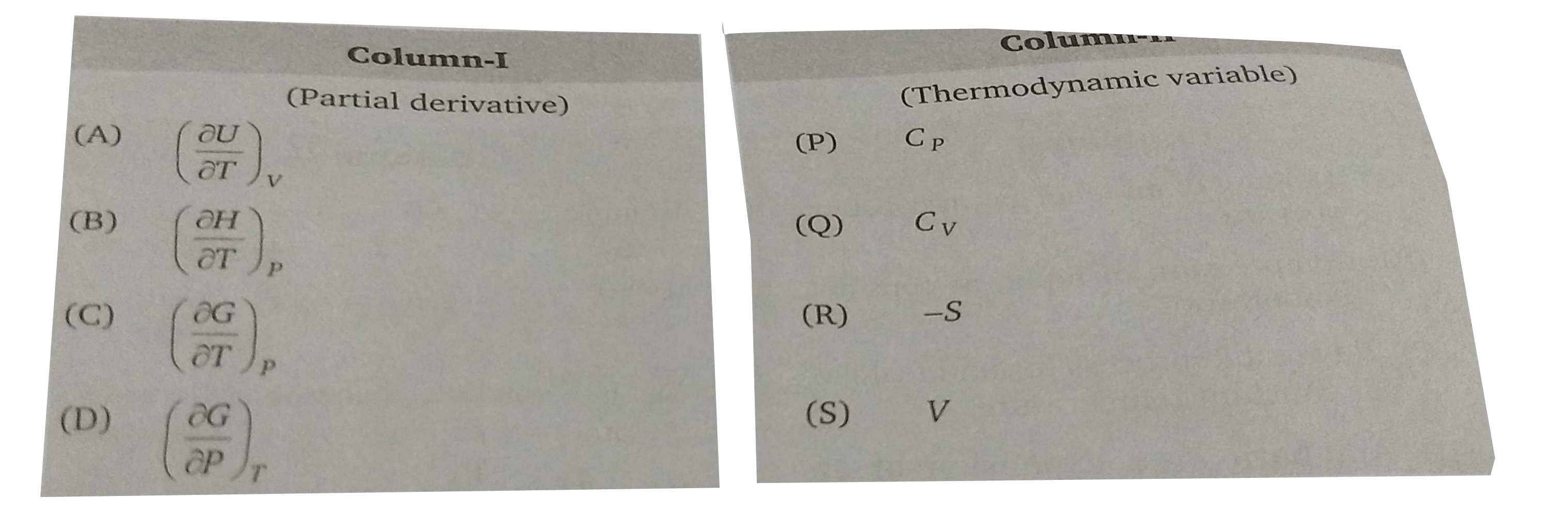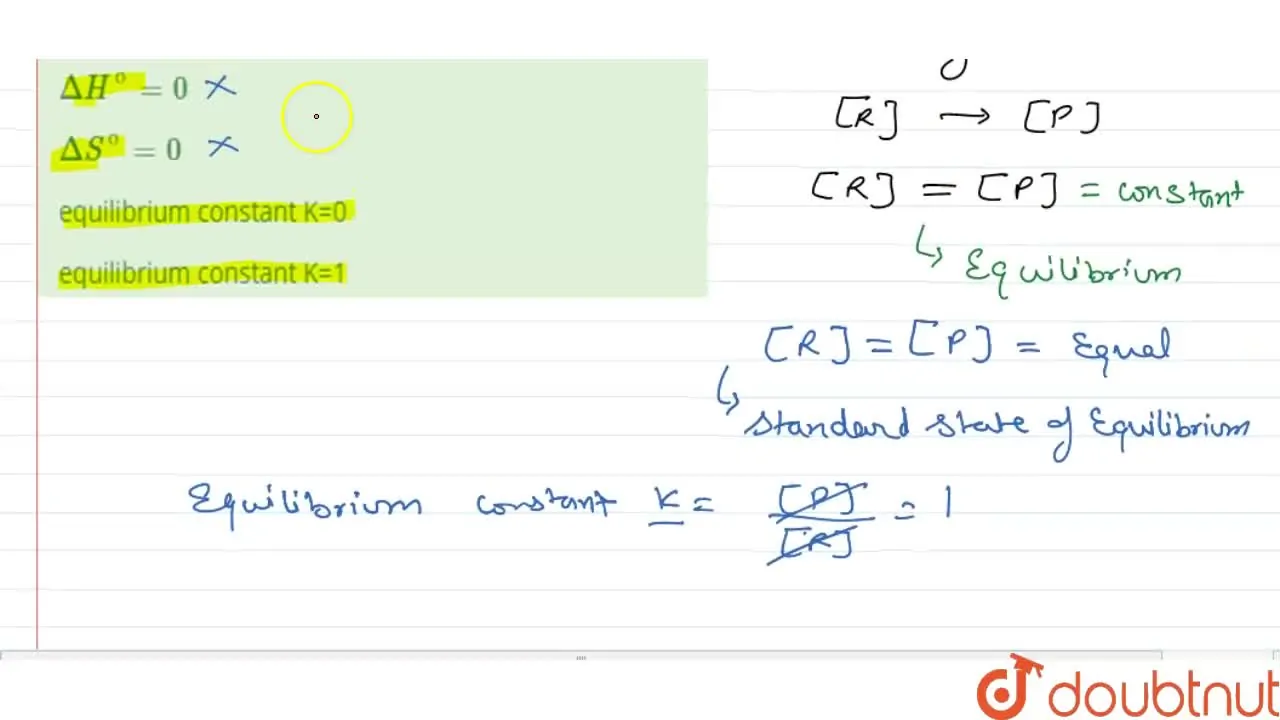When reaction is at standard state at equilibrium, then Solution in Punjabi
ΔH∘=0
ΔS∘=0
equilibrium constant K=0
equilibrium constant K=1
The correct Answer is:D
At standard state on equilibrium ΔG∘=0
ΔG∘=0=−RTlnK⇒K=1
Related Playlists
- BOOK - NARENDRA AWASTHICHAPTER - THERMODYNAMICSEXERCISE - Level 3 - One Or More Answers Are Correct1videos
THERMODYNAMICS
- BOOK - NARENDRA AWASTHICHAPTER - THERMODYNAMICSEXERCISE - Level 3 - Match The Column2videos
THERMODYNAMICS
- BOOK - NARENDRA AWASTHICHAPTER - THERMODYNAMICSEXERCISE - Level 2 (Q.1 To Q.30)1videos
THERMODYNAMICS
- BOOK - NARENDRA AWASTHICHAPTER - STOICHIOMETRYEXERCISE - Level 3 - Subjective Problems20videos
STOICHIOMETRY
Similar Questions
Assume ideal gas behaviour for all the gases considered and neglect vibrational degrees of freedom. Separate equimolar sample. Separate equimolar samples of Ne, O2 , CO2 and SO2 were subjected to a two process as mentioned. Initially all are at same state of temperature and pressue.
Step I → All undergo reversible adiabatic expansion to attain same final volume, which is double the original volume thereby causing the decreases in their temperature.
Step → After step I all are given appropriate amount of heat isochorically to restore the original temperature.
Mark the correct option(s) :05:06View SolutionMatch the following columns
 01:28View Solution
01:28View SolutionWrite structure of 2,2-dimethylheptane.
02:56View SolutionWhat volume of a liquid (in L) will contain 10 mole ? If molar mass of liquid is 280 and its density is 1.4 g/mL.
03:21View SolutionA reaction attains equilibrium state under standard conditions, then:
02:44View SolutionThe equilibrium state is attained when the reversible reaction is carried out in ………… space.
View SolutionThe standard reduction potential at 25^(@)C for the reaction, volt. The equilibrium constant for the reaction : is
02:05View SolutionWhen reaction is at standard state at equilibrium, then
03:50View SolutionThe equilibrium constant of a reaction and the standard Gibbs energy change of the reaction are related by the equation
01:54View SolutionWhen reaction is at standard state at equilibrium , then:
03:46View SolutionA reaction attains equilibrium state under standard conditions, then what is incorrect for this?
01:13View SolutionWhen an object is in equilibrium state, then
04:11View SolutionWhen a system is in equilibrium state
01:48View SolutionWhen reaction is at standard state at equilibrium, then
02:27View Solutionकथन :- किसी अभिक्रिया के साम्य स्थिति में आने पर अभिक्रिया लब्धि Q का मान K के बराबर होता है |
कारण :- किसी अभिक्रिया की साम्य अवस्था आने पर यदि उत्प्रेरक मिलाया जाता है तो Q का मान अधिक समय तक K के बराबर नहीं रहता है |02:12View SolutionA reaction attains equilibrium state under standard conditions, then what is incorrect for this?
04:04View Solution


